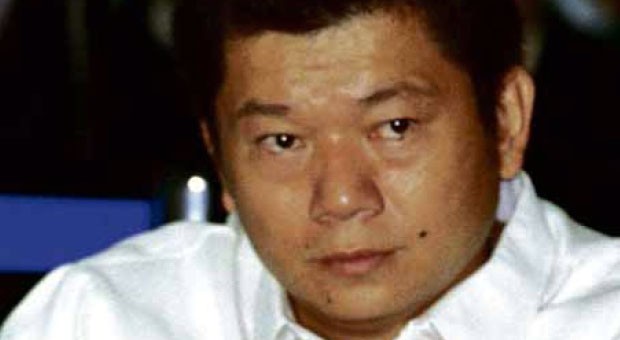The Anti-Money Laundering Council (AMLC) is investigating six persons for possible involvement in a cross-border electronic fraud and money-laundering scheme in which $81 million slipped through the cracks of the Philippine financial system.
Five of them own bank accounts in Rizal Commercial Banking Corp. (RCBC), which were the same ones used by what is believed to be an international syndicate to move money—stolen by computer hackers from the US account of Bank of Bangladesh—to the local financial system. The money found its way into local casinos.
Based on official documents obtained by the Inquirer, the AMLC identified Michael Francisco Cruz, Jessie Christopher Lagrosas, Alfred Santos Vergara, Enrico Teodoro Vasquez, William So Go and Kam Sin Wong (Kim Wong) as those who may be involved in the money-laundering scheme.
On March 1, the Court of Appeals (CA) ordered four banks—RCBC, East West Bank, Banco de Oro and Philippine National Bank—to freeze for the next six months the bank accounts and all related accounts of the six individuals. All bank accounts of Go’s company, Centurytex Trading, were also ordered frozen.
“Based on the investigation conducted by the AMLC, there is an unauthorized issuance of payment instructions through Swift (Society for Worldwide Interbank Financial Telecommunication), a secure financial messaging system, which resulted in the transfer of large amounts of funds to various financial institutions,” said the court.
Dollar accounts
Cruz, Lagrosas, Vergara and Vasquez opened US dollar accounts with RCBC on May 15, 2015, each putting the minimum $500.
The accounts remained untouched until Feb. 5, when a payment order supposedly made by Bank of Bangladesh (BB), the central bank of Bangladesh, with the Federal Reserve Bank of New York paved the way for the transfer of $81 million to RCBC, with the four dollar-account holders as beneficiaries.
The CA said in an order that there was more than ample basis to believe that the bank accounts in the names of the respondents were related to or involved in money laundering.
“The subject accounts will certainly be withdrawn, dissipated and/or disposed of, thereby placing them beyond the reach of law enforcers,” the court said.
Fraudulent order
In a letter dated Feb. 16, BB Governor Atiur Rahman sought the help of Bangko Sentral Governor Amando Tetangco Jr. to recover the money, saying that the Swift payment order sent to RCBC was “fraudulent.”
The CA cited an AMLC report that “Cruz, Lagrosas, Vergara and Vasquez, in conspiracy with Go, used the bank accounts as channels to move and disguise the true source of the proceeds of the unlawful activity of ‘hacking’ or ‘cracking.’”
No income source
The court noted that Cruz, Lagrosas, Vergara, Vasquez and Go had “no known source of income that could justify the several huge financial transactions.”
Most of the $81 million was converted into pesos by remittance firm Philrem. On Go’s orders, the money was transferred to the bank accounts of Weikang Xu, believed to be involved in the gaming business as a junket operator, and to Eastern Hawaii Leisure Co. Ltd. and Bloomberry (Solaire operator).
The sixth person subject to the freeze order, Kam Sin Wong, has no direct links to the group.
However, he has the same surname as the incorporator of Eastern Hawaii Leisure, which operates a hotel-casino complex at the Cagayan Special Economic Zone.
Because casinos are not covered by the money-laundering law in contrast to other entities obliged to report suspicious transactions, it is uncertain what happened to the $81 million that flowed into Eastern Hawaiian and Solaire.
The conventional theory is that the funds had gone out of the country, although there’s no documentary evidence that the amount had been converted back into foreign exchange and remitted elsewhere.
Blame game
For its part, RCBC is investigating the manager of the bank branch in Makati that handled the transactions.
The bank has issued a show-cause order to the branch manager, who was accused of having been lax with the know-your-customer rule when she allowed these people to open bank accounts.
Go, the former owner of S&R membership shopping network, has denied owning the US dollar bank account that consolidated the other accounts for eventual conversion into pesos through Philrem.
Without consent
Go accused the RCBC branch manager of “performing acts of falsification of commercial documents” and of opening fictitious bank accounts for his company, Centurytex, allegedly without his consent. This was the account used to facilitate the deposit of the large amount of remittance and its conversion into pesos.
Based on documents, RCBC officials had no reason to doubt the validity of the remittance from Bangladesh. The branch manager also cited several superiors attesting to the validity of the transactions, which—on paper—were backed by underlying infrastructure projects in Bangladesh.
Loan payment
A $25-million transaction was supposedly ordered by BB on behalf of the government’s The Kanchur, Meghna and Gumti 2nd Bridges Construction project. The amount was remitted to the account of Vasquez purportedly for the payment of a “loan” from Japan International Cooperation Agency (Jica).
A payment for $30 million to Lagrosas, an IT professional, likewise under a Jica “loan,” was supposedly ordered on behalf of Dhaka Mass Rapid Trans. Dev. project
A $6-million payment order on behalf of an IPFF project cell was supposedly to pay for Cruz’s consultancy fees. Another payment worth $19 million was supposedly from Bheramara Combined Cycle Power Plan Development Project with Vergara as beneficiary, citing “engineering consulting fees.”
Questions have been raised on how the fraudulent orders slipped through the US financial system as the transactions involved the Federal Reserve Bank of New York (where BB is an account holder) and US correspondent banks—Citibank, The Bank of New York Mellon and Wells Fargo Bank.
READ: Timeline: $81-M Money Laundering
